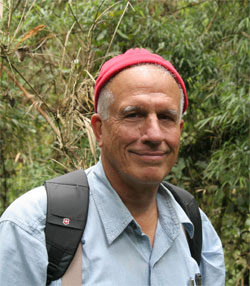 A trip to a Patagonian forest (that’s in South America) has produced the latest development in the biodiesel game.
A trip to a Patagonian forest (that’s in South America) has produced the latest development in the biodiesel game.
Dr. Gary Strobel from Montana State University has found the endophytic fungus, Gliocladium roseum — a hydrocarbon-producing fungus he found growing in a tree in Patagonia — has been shown to produce many of the same hydrocarbons found in diesel. This story from Biodiesel Magazine says Strobel calls his discovery myco-diesel:
Strobel, a professor in the plant sciences and plant pathology department at Montana State University, explained that many organisms produce the shortest chain hydrocarbon, methane, and a number of organisms make longer-chain hydrocarbons that become increasing wax-like as the carbon chains get longer. However, in an extensive search of the literature, no other organism has been identified that produces as many short-chain hydrocarbons as Gliocladium roseum.
“How long it will take to make it practical to use is anybody’s guess,” Strobel said. “My son is doing the genetic profile and genetic sequencing. Perhaps these genes could be moved into other organisms like yeast or E coli that grow faster.” His son, Scott Strobel, is chair of Yale University’s Department of Molecular Biophysics and Biochemistry.
Strobel has published a paper on the subject due out in the November issue of Microbiology. He’s headed next to the rain forests of Borneo and then to Patagonia again to find more specimens to test.
You can read more about Strobel and his work on his Montana State web site: plantsciences.montana.edu/facultyorstaff/faculty/strobel/.

